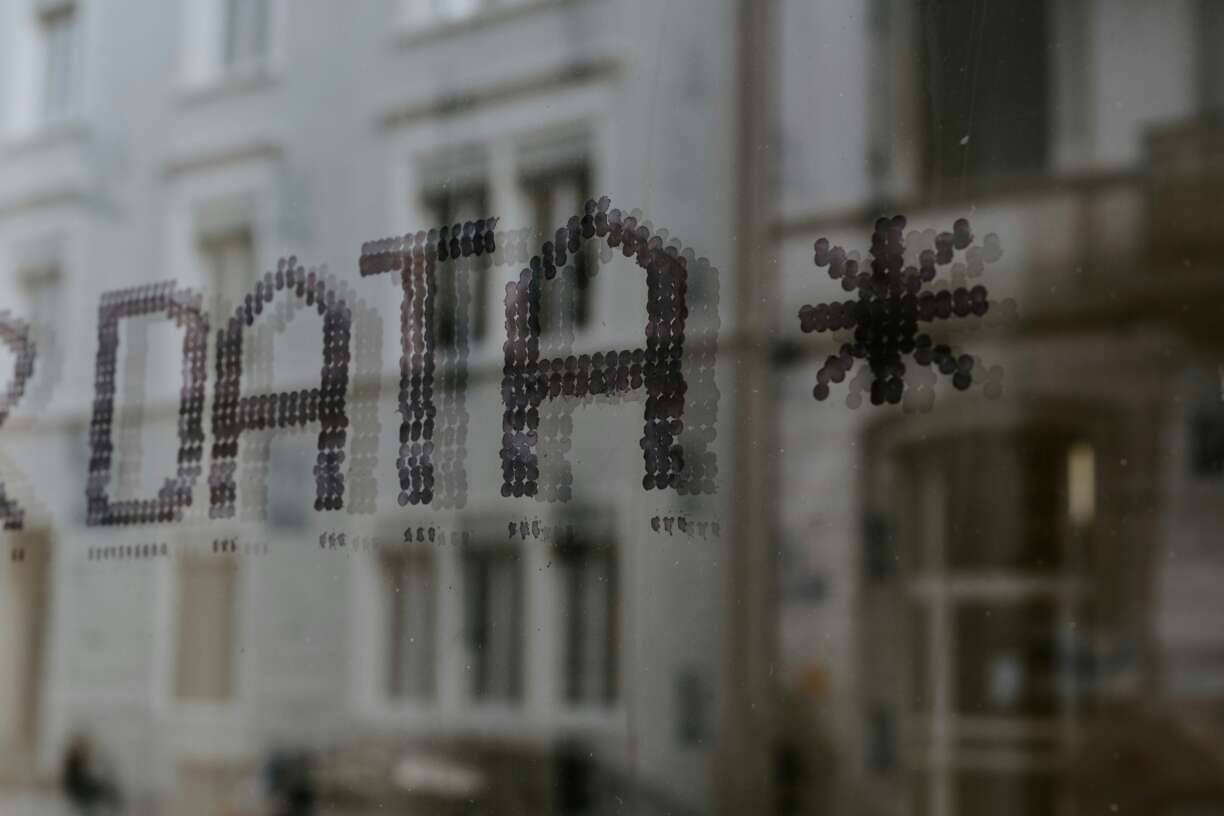December 18, 2024
AlgoSoc Speaker Series: The Tech Coup with Marietje Schaake

On December 12, 2024, AlgoSoc, in collaboration with the Faculty of Law at the University of Amsterdam and SPUI25, hosted a thought-provoking discussion with Marietje Schaake on 'The Tech Coup: How to Save Democracy from Silicon Valley.' As part of the AlgoSoc Speaker Series, the event brought together a distinguished panel of experts to explore the growing power of technology companies, what it means for our democracy and how this power can be reclaimed.
In The Tech Coup, Marietje Schaake explores how large (and small) technology companies have amassed unprecedented power, shaping societies, economies, and democracies in ways that challenge traditional governance. Schaake argues that tech firms operate as quasi-sovereign entities, influencing political systems through monopolistic practices, data exploitation, and lobbying efforts. Her book examines the consequences of this "tech coup," including threats to privacy, the erosion of democratic oversight, and the rise of algorithmic decision-making that undermines accountability.
Tech companies make use of limited regulations and guardrails to develop technologies that entrench their power-position. Schaake provides as an example the Ukrainian war, which induced a strong dependence of the Ukrainian government on Elon Musk’s Starlink satellite’s to facilitate internet connections, and simultaneously launched a variety of defense tech startups such as Shield AI in Silicon Valley. Other companies use different strategies. In an attempt to develop a hyperscale datacenter in the small town Zeewolde, Meta (at the time Facebook) attempted to gain zoning permissions under the alias ‘poldernetworks’. The city council eventually opposed to the data center, and Meta moved elsewhere.
The Tech Coup touches not only on democratic, but also on a variety of far-reaching ethical consequences of the tech coup’s continuous development of new technological products and services, affecting values and fundamental rights such as privacy, equality, and public trust. This stresses that technology ethics must be resistant to the increasing power of technology companies. In contrast, some claim that contemporary technology ethics has become largely industrially embedded and co-opted by the tech industry, focusing almost exclusively on the ethical design and use of technological artefacts (Lemmens, 2022). As Schaake emphasizes how technological developments can serve as instruments to technology companies in seizing power from governments, technology ethics must challenge its industrial embeddedness and become resistant to the increasing power of big and small tech.
How do we, then, face this tech coup? Although the enforcement of existing regulation such as the GDPR, DSA, DMA and the AI-act will help better regulate tech companies, Schaake argues that enforcement is not enough. Democratic leaders and institutions need to wake up, make use of independent expertise and create a clearer technological vision for Europe in order to save democracy from Silicon Valley. Whether it concerns (the need for) regulation, governmental and international cooperation, or technology ethics, The Tech Coup is an insightful work that stresses the importance of taking into account how values and fundamental rights are challenged in algorithmic societies accompanied by increasingly powerful tech companies.
For more details about the event and panelists, you can visit the full event page here. We look forward to welcoming you to one of our upcoming Speaker Series events.
References
Lemmens, P. (2021). Technologizing the Transcendental, not Discarding it. Foundations of Science, 27(4), 1307–1315. https://doi.org/10.1007/s10699-020-09742-5
Schaake, M. (2022). The Tech Coup: How to Save Democracy from Silicon Valley. Princeton University Press.
More results /
 Je medisch dossier inladen in nieuwe functie ChatGPT? Denk 10.000 keer na
Je medisch dossier inladen in nieuwe functie ChatGPT? Denk 10.000 keer na
By Natali Helberger • January 19, 2026
By Roel Dobbe • November 24, 2025
By Roel Dobbe • November 12, 2025
 Combatting financial crime with AI at the crossroads of the revised EU AML/CFT regime and the AI Act
Combatting financial crime with AI at the crossroads of the revised EU AML/CFT regime and the AI Act
By Magdalena Brewczyńska • January 16, 2026
By Sabrina Kutscher • July 02, 2025
By Natali Helberger • March 06, 2025
By Maurits Kaptein • June 06, 2025
By Leonie Westerbeek • November 22, 2024
 Clouded Judgments: Problematizing Cloud Infrastructures for News Media Companies
Clouded Judgments: Problematizing Cloud Infrastructures for News Media Companies
By Agustin Ferrari Braun • January 29, 2026
By Fabio Votta • November 05, 2025
By Ernesto de León • Fabio Votta • Theo Araujo • Claes de Vreese • October 28, 2025





